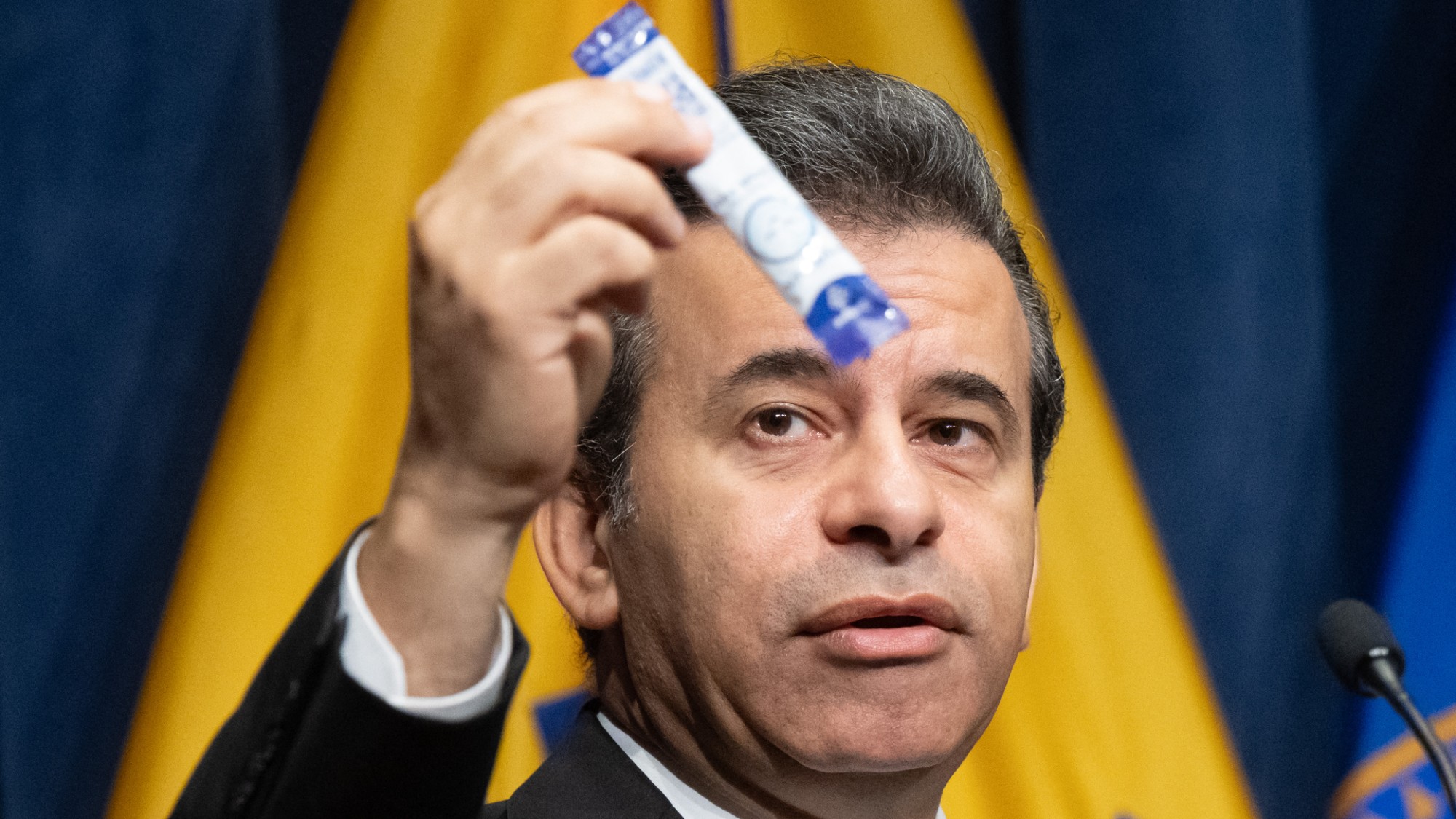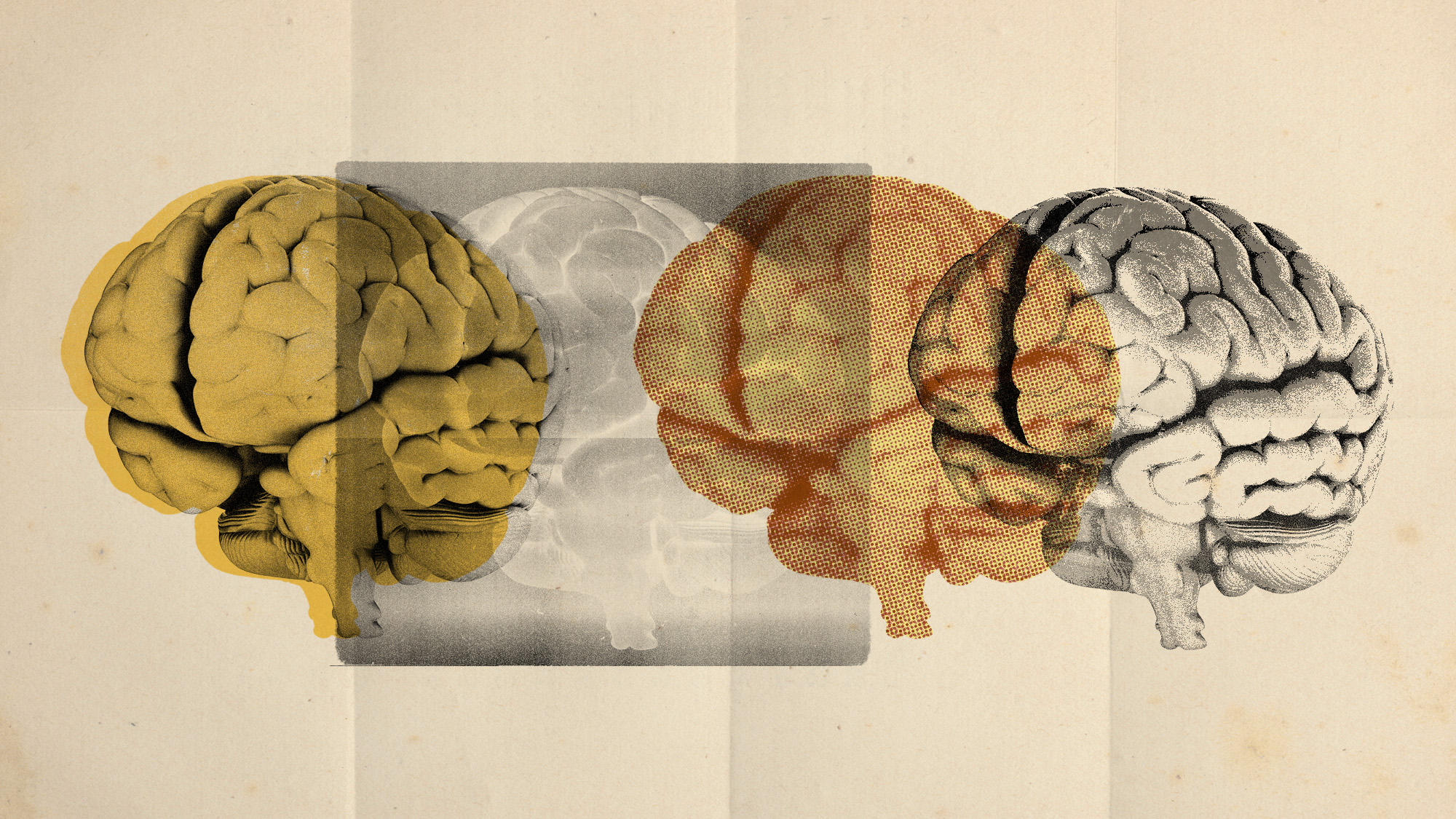Avatar therapy: a groundbreaking treatment for psychosis?
Study reveals digital characters can help patients 'push back' against distressing voices

A free daily email with the biggest news stories of the day – and the best features from TheWeek.com
You are now subscribed
Your newsletter sign-up was successful
New research published in the journal Nature has shown that people with psychosis could "find peace" with the help of therapy involving digital avatars for the voices in their head, said Sky News.
Clinical psychologists at King's College London worked with patients who hear aggressive and abusive voices to create computer-generated versions of their "tormentors". Trained therapists then lead a series of guided role-play sessions which allowed patients to have conversations with their avatar and "push back" against the abuse.
Funded by the Wellcome Trust, the study included 345 participants with psychosis. Just a few sessions of avatar therapy were shown to reduce both the distress and frequency of the voices.
The Week
Escape your echo chamber. Get the facts behind the news, plus analysis from multiple perspectives.

Sign up for The Week's Free Newsletters
From our morning news briefing to a weekly Good News Newsletter, get the best of The Week delivered directly to your inbox.
From our morning news briefing to a weekly Good News Newsletter, get the best of The Week delivered directly to your inbox.
Pioneering research
Since the mid-20th century, anti-psychotic medications have been the "go-to treatment" for psychosis, said Jenny Kleeman in The Guardian. But these drugs "don't work for everyone" and come with "serious side effects", from sexual dysfunction to bed-wetting and exhaustion.
Avatar therapy was developed by Professor Julian Leff, a retired University College London schizophrenia specialist, who realised that patients felt more in control when they had "meaningful exchanges" with the voices in their head. In 2008, he was awarded funding for a pilot study and used police identikat software to create digital characters, which he voiced from another room using voice-changing software.
"At first, the avatar would say typical lines the patient had shared with Leff: often degrading, abusive phrases," said Kleeman. "But over the course of six sessions, the dialogue would change, with the avatar yielding to the patient, transforming from omnipotent to submissive. "
After six sessions, the auditory hallucinations became "less frequent and intrusive" for 13 of the 16 participants. Tom Craig, professor of psychiatry at King's College London, was "sufficiently impressed" to lead a randomised controlled trial on 150 patients, and found avatar therapy to be "quicker, cheaper and more effective" than 12 weeks of alternative therapies for psychosis.
A free daily email with the biggest news stories of the day – and the best features from TheWeek.com
Encouraging results
The results of the latest study, Avatar2, were "dramatic", said Kleeman. "No other psychological intervention has been shown to cause such a significant reduction in the frequency of intrusive voices". Philippa Garety, the lead author of the study, said reducing auditory hallucinations can have a "hugely positive impact" on patients' day-to-day lives.
Nick, a participant in the trial who was hearing up to 40 abusive voices a day before taking part, said he felt avatar therapy had helped him to "take back control" of his life, reported The Independent. By the end of the study, the voices had reduced to around four or five.
The National Institute for Health and Care Excellence has recommended avatar therapy as a safe and effective treatment for NHS deployment, and the Wellcome Trust hopes there will be a widespread roll-out across hospitals in the UK in the next five years. Meanwhile, a new study, Avatar3, will explore whether artificial intelligence could be used to voice the digital avatars.
Results from preliminary research carried out by the team at King's College has also shown it to be a "promising intervention" for those suffering with eating disorders, with the digital character taking on the role of the "anorexic voice", said Kleeman in The Guardian. It's clear that avatar therapy has the potential to treat mental health conditions that go far "beyond psychosis".
Irenie Forshaw is the features editor at The Week, covering arts, culture and travel. She began her career in journalism at Leeds University, where she wrote for the student newspaper, The Gryphon, before working at The Guardian and The New Statesman Group. Irenie then became a senior writer at Elite Traveler, where she oversaw The Experts column.
-
 Antonia Romeo and Whitehall’s women problem
Antonia Romeo and Whitehall’s women problemThe Explainer Before her appointment as cabinet secretary, commentators said hostile briefings and vetting concerns were evidence of ‘sexist, misogynistic culture’ in No. 10
-
 Local elections 2026: where are they and who is expected to win?
Local elections 2026: where are they and who is expected to win?The Explainer Labour is braced for heavy losses and U-turn on postponing some council elections hasn’t helped the party’s prospects
-
 6 of the world’s most accessible destinations
6 of the world’s most accessible destinationsThe Week Recommends Experience all of Berlin, Singapore and Sydney
-
 ‘Longevity fixation syndrome’: the allure of eternal youth
‘Longevity fixation syndrome’: the allure of eternal youthIn The Spotlight Obsession with beating biological clock identified as damaging new addiction
-
 The diminishing power of willpower
The diminishing power of willpowerIn the Spotlight ‘Try harder’ attitude may not be the best way to achieve long-term goals
-
 RFK Jr. sets his sights on linking antidepressants to mass violence
RFK Jr. sets his sights on linking antidepressants to mass violenceThe Explainer The health secretary’s crusade to Make America Healthy Again has vital mental health medications on the agenda
-
 This flu season could be worse than usual
This flu season could be worse than usualIn the spotlight A new subvariant is infecting several countries
-
 The app tackling porn addiction
The app tackling porn addictionUnder the Radar Blending behavioural science with cutting-edge technology, Quittr is part of a growing abstinence movement among men focused on self-improvement
-
 Why the FDA wants to restrict kratom-related products
Why the FDA wants to restrict kratom-related productsIn the Spotlight The compound is currently sold across the United States
-
 Scientists have identified 4 distinct autism subtypes
Scientists have identified 4 distinct autism subtypesUnder the radar They could lead to more accurate diagnosis and care
-
 'Wonder drug': the potential health benefits of creatine
'Wonder drug': the potential health benefits of creatineThe Explainer Popular fitness supplement shows promise in easing symptoms of everything from depression to menopause and could even help prevent Alzheimer's